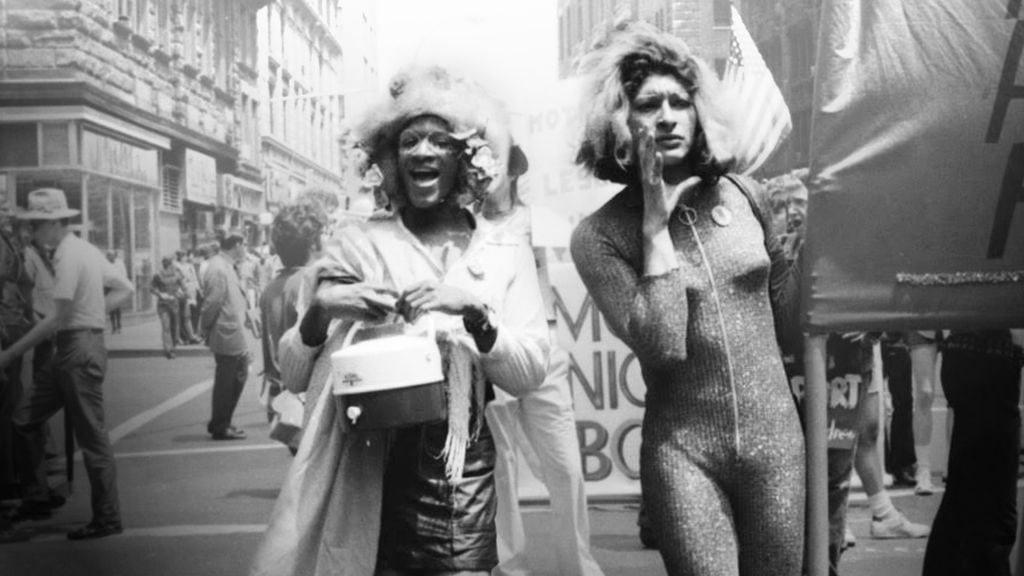Sylvia Rivera and Marsha P Johnson. (Netflix)
The first-ever known recording of trans icons Sylvia Rivera and Marsha P Johnson has been uncovered, hidden in the basement of New York’s Lesbian Herstory Archives.
After taking part in the Stonewall uprising in 1969, the two became known as trans activists and pioneers of the gay rights movement.
The taped interview recorded in 1970 was discovered in the Brooklyn basement by Brian Ferree, archival researcher for the podcast Making Gay History, and he said it was simply marked “STAR”.
“Street Transvestite Action Revolutionaries”, otherwise known as “STAR”, was a group founded by Johnson and Rivera in 1970. The fragile tape was carefully digitised, and published on the podcast.
At the time of the recording Rivera was just 19 years old and Johnson was 25, and they were interviewed by Liza Cowen who was a 20-year-old reporter for “listener-supported radio” WBAI-FM.
The two discuss coming to New York, discovering their identities and beginning their activism.
Speaking on the podcast about discovering the tape, Ferree said: “It reminded me of how young everyone was then.
“I think the Marsha P Johnson and Sylvia Rivera that I’ve grown accustomed to, they were older by the time… the film that I’ve seen of them, the video that I’ve seen of them, the recordings that I’ve listened to from them, they had more time under their belt.
“This, it was like they were freshly arrived in New York and just letting it all out.”
Johnson and Rivera discuss both the negative and positive reactions they had to their gender expressions.
At one point, Rivera said: “My grandmother completely freaked out for a number of years until she just recently has to be satisfied that I’m, that I’m going to be my way.
“And now she calls me Sylvia. I’m her dear granddaughter… Society keeps on saying, ‘You can’t do this because this isn’t your role.’ Who is to tell who what role we’re supposed to take?”
Ferree added: “It was special for me because they’re not just talking about the organisation that they created.
“They’re also talking about their lives, and they’re talking about how they see the world around them and how they see gender. It’s all very personal.”
